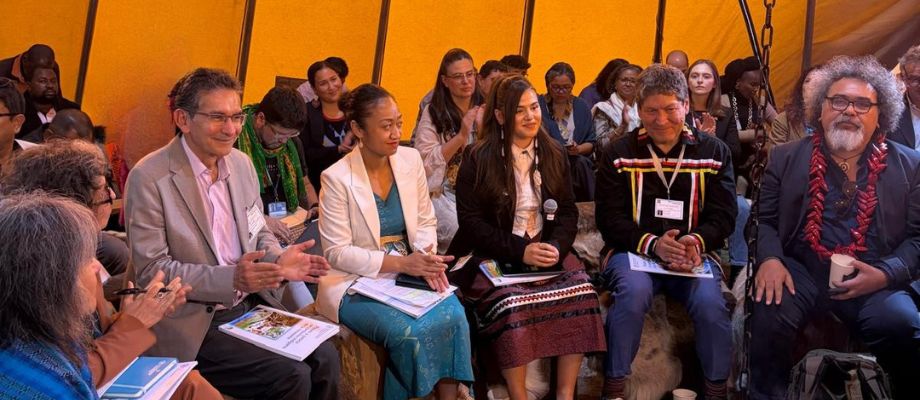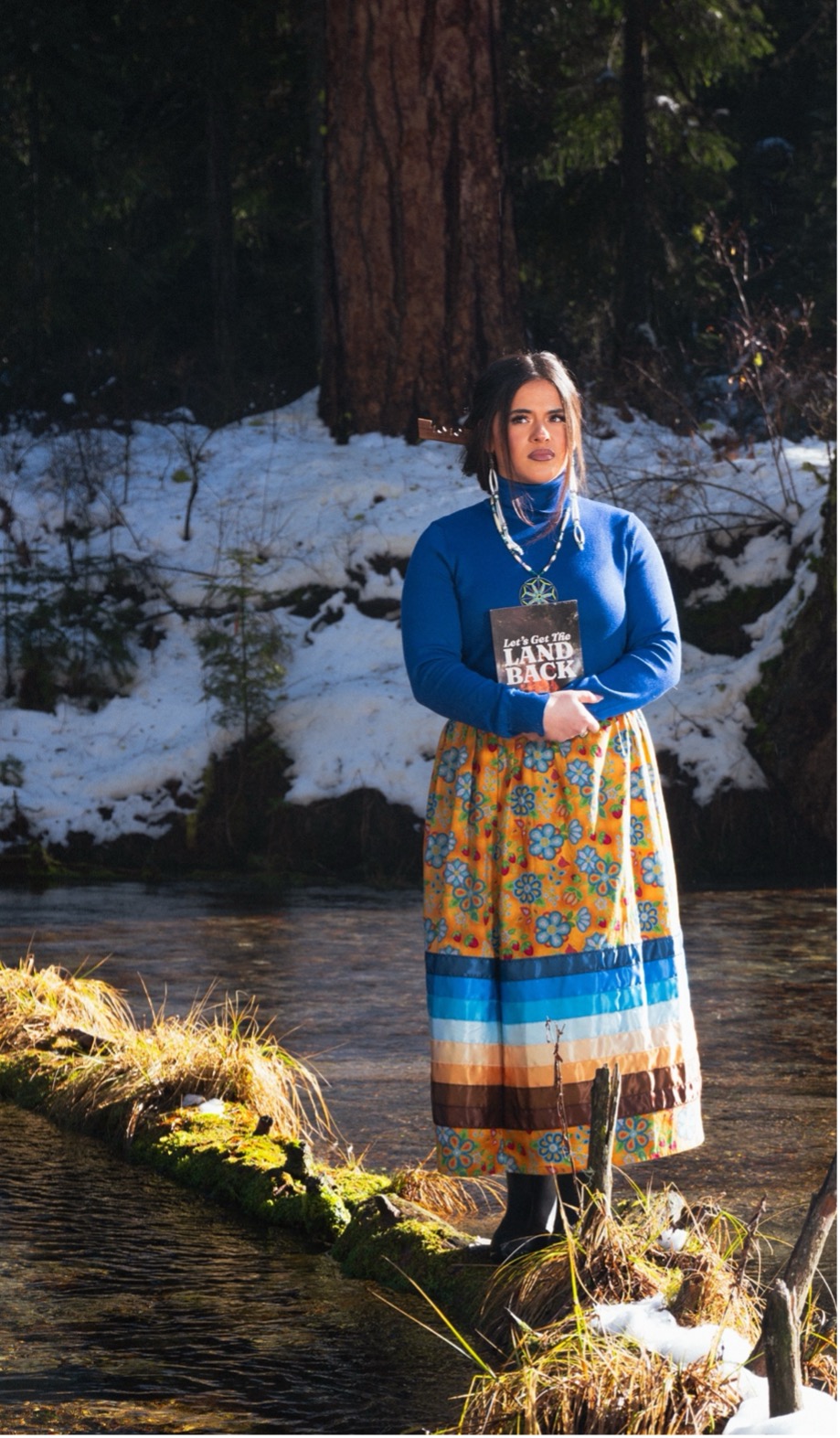Lessons from the river: Carrying forward the teachings of my ancestors

Written by Tanikwah Lang
My fingers sting from the cold as I hold them over the fire, the warmth rushing back too quickly as the sun begins to wash away the morning dawn. Down the bank, I can hear my sisters laughing as they talk about how the last fish got away with the bait, already rebaiting their lines with fresh minnows. Once I’m warm enough, I join my father upstream just as he casts his line. Moments later, it whips back and forth, a fish is on. He quickly hands me the pole, guiding my hands with patience and care. My dad isn’t always patient, but in that moment, he takes the time to show me what to do, helping me feel the strength of the fish on the line. With my sisters cheering beside us, we bring the fish to the bank, where my father begins to clean it and explains how to prepare it for our meal later that day.
This is one of my early memories of fishing, and one that continues to shape who I am. As a Klamath Tribal person, fishing and our relationship with fish are deeply rooted within us. Our homelands are in the Upper Klamath Basin of southern Oregon, and have an abundance of rivers, marshes, and lakes that have historically supported bountiful amounts of fish, a primary component of our diet and culture. The knowledge and teachings my father shared with me that day were passed down from his elders and from our ancestors before them. These moments hold more than the memory of catching a fish; they carry the teachings of respect, reciprocity, and responsibility. I carry these values with me and let them guide the work I do today and will continue to do in the future.
|  |
This understanding continues to guide my academic and professional journey. As I sit on this plane reflecting on my participation in FAO’s World Food Forum, Science and Innovation Forum and the Global Hub on Indigenous Peoples’ Food Systems, I think about what it means to carry these teachings into global spaces. Traveling over 9,000 kilometers away from my community to contribute to discussions on fisheries and aquaculture felt both humbling and empowering.
In rooms filled with passionate people from around the world all gathered to discuss the policies and challenges of global fisheries, I am reminded of who I represent and why my voice matters. I shared Indigenous perspectives on stewardship and the importance of meaningful participation in decision-making. I also engaged in discussions about key global policy frameworks, such as the Voluntary Guidelines for Securing Sustainable Small-Scale Fisheries (SSF Guidelines), exploring how these tools can support Indigenous-led fisheries management and food sovereignty back at home.
My participation in these international dialogues reaffirmed that Indigenous peoples have long been leaders in sustainable fisheries and aquatic stewardship. The wisdom of our ancestors, combined with the scientific approaches we engage with today, can offer powerful pathways for the restoration and protection of aquatic ecosystems globally and strengthen access to culturally appropriate fisheries.
This experience reminded me that my work in fisheries is both local and global. It is rooted in ancestral knowledge and in my community’s lived experiences, but it also contributes to broader conversations about sustainability, resilience, and justice. As I continue my education and career, I carry forward the lessons of that early morning by the fire: patience, respect, and responsibility, and the understanding that caring for the fish is, ultimately, caring for our people and our future.
Tanikwah Lang is a citizen of the Klamath Tribes of southern Oregon, where she grew up on her ancestral homelands. She is a second-year Agroecology master’s student at the University of Wisconsin–Madison, researching how forest management influences wild blueberry growth in collaboration with the Menominee Nation to strengthen Indigenous Food Sovereignty. Tanikwah’s background includes working with the Klamath Tribes’ Ambodat (of the water) Department, where she contributed to fisheries and water quality restoration efforts. Her work centers on protecting natural resources and expanding access to traditional foods across Indian Country for cultural, spiritual, and physical well-being.
The participation of Ms Lang at the conference was supported through the project Enhancing Equitable, Climate-Resilient, and Sustainable Small-Scale Fisheries through the Implementation of the SSF Guidelines, funded by the Swedish International Development Cooperation Agency (Sida).
The views and opinions expressed in this article are those of the author and do not necessarily reflect the views or policies of FAO.
